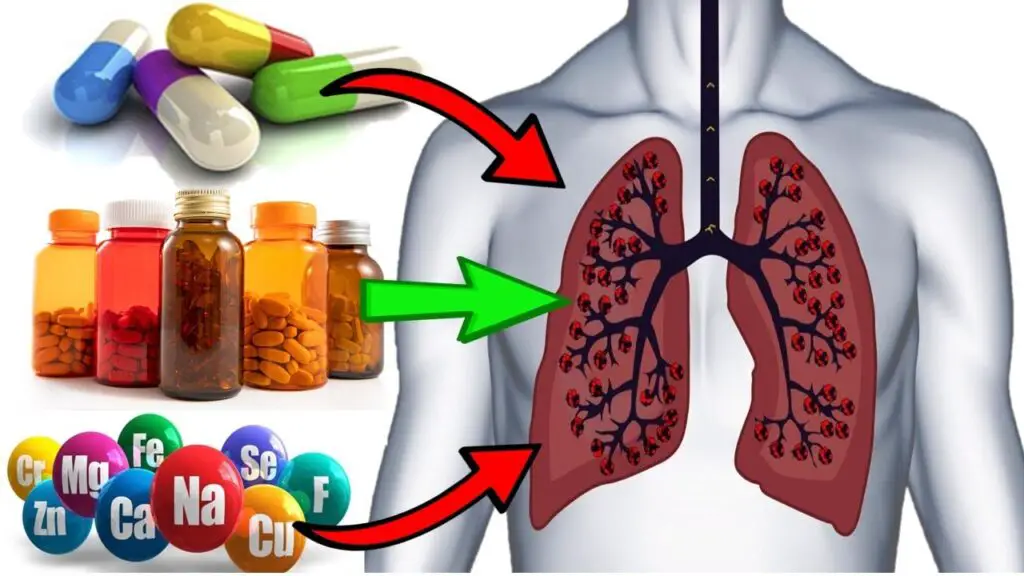Breathing is something we often take for granted. It's a natural process that the body carries out every second of every day, and we often don't think any more about it. We may think about our digestion, our heart health, and the suppleness of our brain, but not the health and wellness of our lungs.
Just like any other organ in our bodies, our lungs need to be nourished. It's often impossible to avoid airborne pollutants and viruses, but one thing we do have control over is how well we take care of our lungs. Eating lots of fiber and maintaining a good diet does wonders for the gut - but what keeps our lungs working at their best? Let's find out.
Causes of Poor Lung Health
Breathing in polluted air every day is going to have an impact on our lungs. Living in a big city can expose our lungs to dirty air, and this can be unavoidable. Smoking or breathing in second-hand smoke also seriously damages the lungs over time. Chronic obstructive pulmonary disease (COPD) affects many people today. It can have a variety of causes, but the result is always the same: difficulty breathing and deteriorating lung function.

People with COPD may suffer from emphysema and chronic bronchitis. Chronic lung problems such as COPD are unfortunately a common affliction. COPD is a degenerative disease and is commonly linked with smoking.
Minerals, vitamins, and supplements, unfortunately, cannot reverse COPD or COPD symptoms, and shouldn't be used instead of medicine. However, they can ease the symptoms. Proper supplements nourish the lungs and can work as a preventative measure.
Let's look at which vitamins, minerals, supplements, and foods can benefit your lungs. Of course, you should always seek proper medical advice when it comes to organs as vital as the lungs. Remember, none of these vitamins will do you much good unless you couple them with a healthful lifestyle.
Vitamins, Supplements, and Minerals for the Lungs
There are a variety of supplements available that are designed to nourish the lungs. You can get these in supplement form, or via lifestyle and diet. Naturally obtained vitamins and minerals tend to work the best, and have very few side effects - but if you're not in a position to do this, supplements are fine.
1. Vitamin E
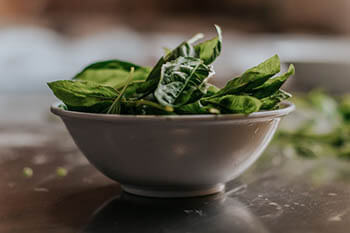
Vitamin E is found in sunflower and olive oils, as well as peanut butter and spinach. It may have a preventative effect on lung problems such as COPD. However, it's worth noting that an overdose of vitamin E can be dangerous for anyone who takes blood thinners. If you're not sure whether you should take vitamin E, speak to your medical advisor first.
2. Vitamin C

Vitamin C is a well-known water-soluble supplement in the health care world, with a host of uses around the body. Research has found that this vitamin fights off free radicals, as well as working as an anti-inflammatory. It also boosts immunity and may help to protect lung tissue during viral infections.
Vitamin C also helps to promote collagen production. Collagen is essential to strong, supple tissue, especially in the lungs. When the lungs are infected, damage can be caused. Even after recovery, this can leave scar tissue. This scar tissue doesn't stretch or adjust itself, restricting the lungs' capability. Plenty of vitamin C is essential while fighting off a lung infection, to prevent permanent scarring and subsequent damage.
Most fruits and vegetables are rich in vitamin C.
3. Vitamin D
Vitamin D is a vitamin that can't be obtained by diet. It's created during a process in the body when the sun shines on the skin. Depending on where you live, vitamin D deficiencies can be rare or common. However, simply getting a bit of sun isn't enough to produce vitamin D. The vitamin must then be activated in the kidneys - or in the lungs. The lungs also have a way to activate vitamin D because this vitamin is essential to proper lung function. Low levels of vitamin D have been linked to poor lung health, as well as issues such as asthma.
If you feel that you aren't getting enough vitamin D, you may want to consider taking vitamin D supplements. Seeing a doctor for medical advice & diagnosis may help you to establish whether you have a deficiency, and if so, how bad the deficiency is.
4. Vitamin A

Vitamin A is another crucial vitamin for a healthy body. According to research, it helps wounds to heal, promotes good cellular growth and tissue repair, and aids good vision. It also boosts the immune system and nourishes the lungs, supporting the natural repair of lung tissue.
Vitamin A deficiencies can cause serious lung problems. A lack of vitamin A can increase asthma symptoms and cause bronchial spasms, as well as slowing down tissue repair. However, be sure to consult a doctor before adding a vitamin A supplement to your diet, since vitamin A toxicity can cause serious health problems. Your best bet is to get vitamin A through your diet. It can be found in foods like cod liver oil, fish, meat, dairy, poultry, and other animal products.
5. Nitric Oxide

Nitric oxide promotes blood flow, nourishing the blood. It promotes good tissue repair, boosting the immune system and helping to heal wounds faster. It can also work to reduce the chances of lung blood clots. Nitric oxide is an important substance for people suffering from asthma. Fermented food is rich in nitric oxide, as well as cabbage, garlic, fennel, and onion.
6. Glutathione
Glutathione is another treatment that can ease the symptoms of asthma. Glutathione is a natural antioxidant, and a powerful anti-inflammatory. Inflammation can be a serious problem in the respiratory system, narrowing the airways. This can be an issue with infection or for an asthma sufferer, or even simply if you're dealing with cold symptoms. Glutathione may help to filter out toxins that we breathe in through the air. Glutathione can be found in asparagus, avocado, Brussels sprouts, walnuts, and more.
7. L-Arginine
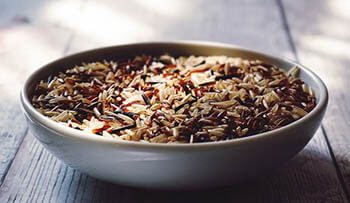
L-Arginine works well with nitrates. It can boost nitric oxide levels, helping to enhance the heart and promote good circulation. This treatment also boosts the immune system, which works to nourish the respiratory system. You can find L-Arginine in nuts, brown rice, oats, chocolate, and more.
8. L-Citrulline
L-Citrulline is a naturally occurring amino acid, found in foods like pumpkins, cucumbers, watermelons, and gourds. It's also produced naturally in the body. Just like L-Arginine, this amino acid works to enhance nitric oxide, nourishing and boosting your whole body - as well as your lungs.
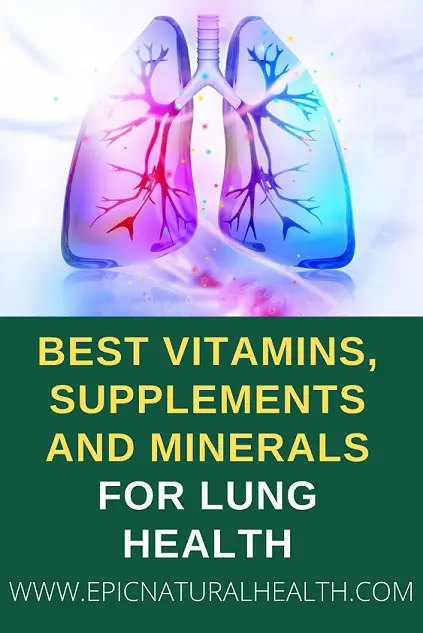
Lifestyle Changes to Deal with Poor Lung Function
Unfortunately, all the supplements and treatment options in the world won't make up for a poor diet and bad lifestyle choices. It's best to get the minerals and vitamins listed above from your food, and this means eating a healthful, balanced diet. There are also other things you should consider, which can ease some symptoms of poor lung health, and keep your lungs healthier for longer.
1. Quit Smoking

The absolute best thing you can do for your respiratory system is to stop smoking. The chemicals and nicotine in cigarettes clog up the lungs, creating a thick, tar-like film on the inside of your airways. This can lead to the well-known "smoker's cough" along with a miasma of bad smells and skin discoloration. Smoking is often (but not always) the root cause of cancers of the lung, mouth, throat, and more, as well as COPD and other chronic lung health issues. People with COPD may be medically advised to quit smoking.
2. Breathe Clean Air
Breathing clean, fresh air free of toxins is crucial to good lung health. Depending on where you live, it may be difficult to breathe clean air. However, it's important to avoid second-hand smoke, where you can. Smoke can clog up the respiratory system just as badly as if you were the person smoking. While most public places do not permit smoking indoors, beware of being around people at home or work who smoke frequently. Your lungs will get damaged as well as theirs, and any existing lung health problems will get worse.
3. Stay Well Hydrated

Just like all your other organs, proper hydration is crucial to good lung health. People with COPD, asthma, or other lung function issues should make sure they're well-hydrated every day. Water flushes toxins from our bodies, nourishes our tissues, and keeps us healthy.
4. Eat a Healthy Diet
While supplements can work very well for people with COPD who can't get enough vitamins in their diet, it's best to get our vitamins and minerals through our food.
Junk food and food that's high in carbs and sugar might be tasty, but they often carry little to no nutritional value. Fruits, vegetables, grains, dairy, meat, poultry, oily fish, and healthful fats all carry vitamins that are vital to good lung function and better health and wellness. While a good diet doesn't remove the risk of developing lung function problems or COPD in later life, it may reduce your risk. If you're already suffering from COPD or some other lung problem, eating a good diet and living a healthy lifestyle can improve your quality of life.
5. Foods for Healthy Lung Function
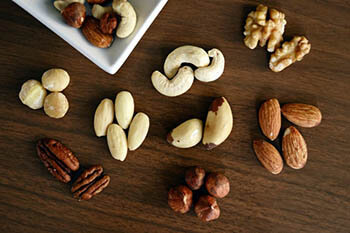
Certain foods are better for lung nourishment. Particularly healthful, nutrient-rich foods that you can add to your diet include:
- Pumpkin
- Apples
- Beets
- Tomatoes
- Blueberries
- Green tea
- Nuts
- Oats
- Red cabbage
- Olive oil, or sunflower oil
- Fermented foods (such as beets, cabbage, etc)
- Chocolate
- Coffee
- Oily fish
- Dairy
- Lentils
- Dark, leafy greens
As well as this, fruits, vegetables, and whole grains are always an excellent addition to any diet.
When To See a Doctor
Lung health is important. For people with COPD, early advice, diagnosis, or treatment is essential to good respiratory health care. If you already suffer from a lung issue and you think you have covid 19, consult a doctor. The recent pandemic is exceptionally dangerous for COPD patients or people with respiratory issues, and you should be sure to stick to any local guidelines, for your own safety.
While COPD is a degenerative disease, that doesn't mean you can't maintain your own health by supplements, vitamins, minerals, and good lifestyle choices. Intake of supplements may help, but it's best to focus on natural, organic ways of getting vitamins into your body.
If you have any concerns at all, consult your doctor. A medical professional can give you valuable advice and insight, especially if you're planning to make considerable, long-term changes to your lifestyle and diet.

